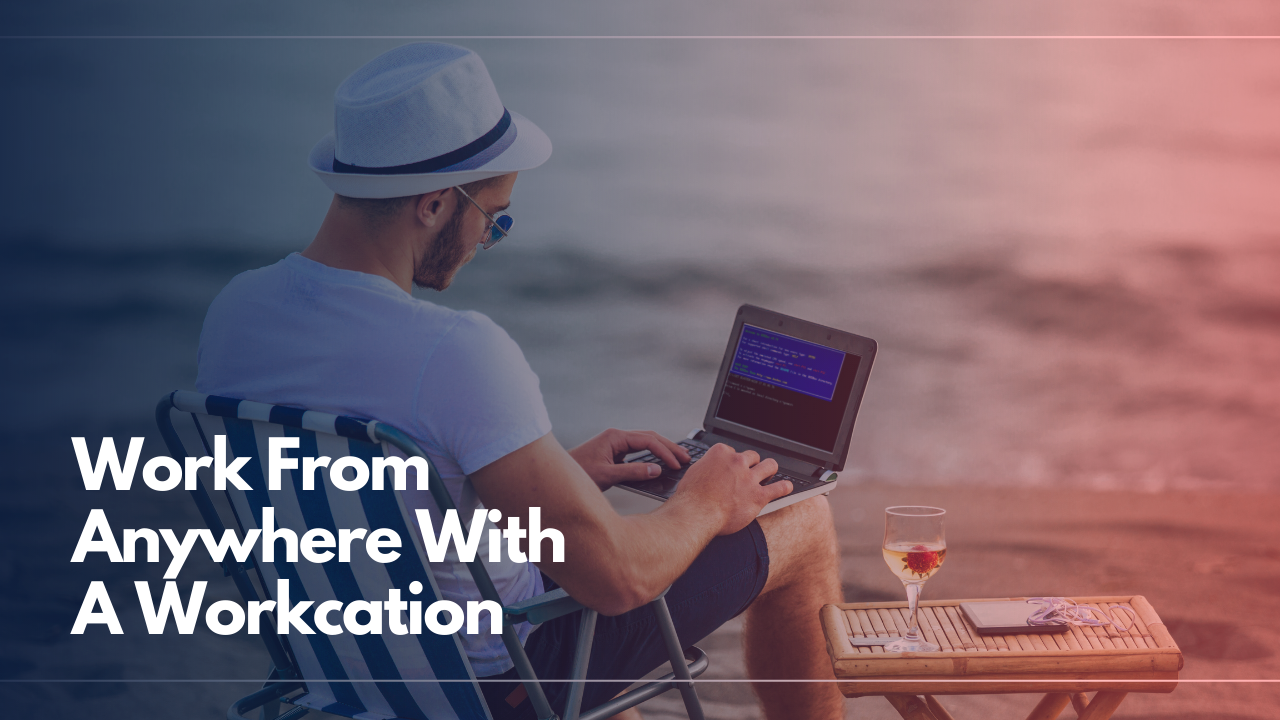- If working from home is becoming tedious, change your scenery and your routine by taking a workcation.
- It allows workers to travel and enjoy the benefits of being somewhere new, without needing to take time off.
- Here’s how to plan a workcation while taking Covid-19 considerations into account.
If given the opportunity to work from anywhere, where would that anywhere be?
For many with a likely permanent option to work remotely, that has been a prominent question. Scores of reports have been tracking a seeming exodus of workers from major cities like San Francisco or New York to smaller cities and rural communities, with one Upwork survey estimate showing that up to 23 million people could move as a result of new remote work options.
However, working from anywhere does not require a full upheaval and cross country move. Working from anywhere has also opened the door for remote workers to take advantage of temporary relocations, without draining their PTO.
The popularity of workcations (also commonly spelled “workations”) has been growing over the past several years, as highlighted in this article by the Wall Street Journal back in 2015, which called them “working vacations by design”.
What is a workcation?
A workcation is a vacation where you continue to work, but take a break from your usual workplace, whether that workplace is in the office or at home. It allows someone to travel and enjoy the benefits of both the change of scenery and tourist activities, while still putting in enough work to not require taking time off.
Workcations are a great way to extend the traditional weekend getaway into a more leisurely week or longer trip, for example. Some remote workers use workcations to spend weeks or months in a new locale, which can allow for a deeper appreciation for the location than would be possible on a whirlwind tour with limited time off. For families with children, workcations can be beneficial as a way to enable travel without being restricted by the one family member still needing to work.
Sounds great! How do you take a workcation?
Planning a workcation has a lot of similarities to planning a traditional vacation. However, there are some key considerations that should be factored in to ensure the work portion of the trip is successful and productive.
1. COVID-19
At least for now, no workcation can be planned without also carefully considering any risks associated with traveling during the pandemic. For many locations, visiting is not a safe option for the time being due to widespread cases of the coronavirus and regional restrictions, especially pertaining to travelers.
2. Be Transparent & Set Expectations
Even if it’s not necessary to take official time off from work, it’s important to be transparent about your planned travel with your team and management. Set clear expectations on when you plan to be available for work related meetings or issues, how best to communicate with you, and if there will be any other planned disruption to your normal work schedule.
3. Time Zones
The easiest workcation, so a great way to test the waters if you are new to taking one, is in the same time zone as your normal workplace. Maintaining the same schedule as at home makes it easier to coordinate with colleagues, work similar hours, and minimize any disruption from traveling to your destination.
4. Workspace
No workcation is feasible without fast, reliable internet and a proper place to work. Before selecting your destination, and especially before booking any lodging, make sure that you’ll be able to get work done once you arrive. Many remote work travelers take advantage of local coworking spaces for this reason. Include a local search for coworking and contact spaces in advance as part of your workcation planning.
5. Travel Requirements
For longer stays in another country, it may be necessary to obtain a special travel or work visa in advance. Several countries around the globe from Portugal to the Cayman Islands are experimenting with remote-work visas designed specifically for digital nomads looking to work remotely.
6. Balance
Striking the right balance between work and play can make or break any workcation. Good planning for both work and leisure activities can help to ensure that you get the most enjoyment out of your temporary workplace. If there is a daytime activity that is a must do on your list, shift a few work hours to the evening or the next day, for example, to make sure you can enjoy it without getting behind on work. Similarly, don’t miss out on taking in the sights because you let yourself get bogged down with work and never make it out of your accommodation.
With more companies opting to allow their employees the flexibility to work from anywhere, workcations are sure to become a travel and leisure industry staple for more than just digital nomads.















